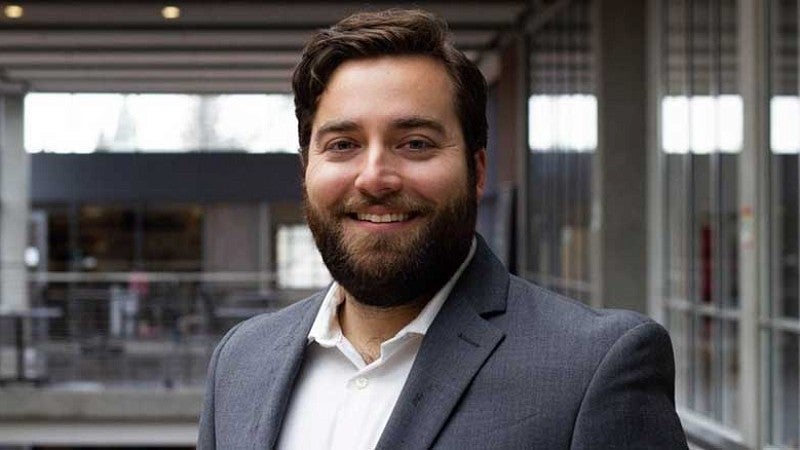
Doctoral Candidate, Anthropology
Josh Schrock is a doctoral student in biological anthropology, studying rest and when we choose to rest. Schrock began his academic career at Ohio State University where he received a bachelor’s degree in anthropology. His interest in the subject started with a curiosity to learn about what life was like in other places and times. He found his passion in working to understand the social and societal factors that can influence health and other biological factors in humans. Before coming to the UO, he earned a master’s in public health at Emory University.
Schrock chose to pursue his PhD in Eugene because of the quality of the program and its alignment with his research interests. “The overall environment at UO felt great,” says Schrock. “The folks that I met were really interested in helping each other with their projects and it felt easy to talk to people about your research.”
As a researcher, Schrock is already making a name for himself in his field. After presenting early research for his dissertation at a conference, he was asked to write an article for Evolution and Human Behavior, one of the top journals in the scientific study of human behavior. Schrock was also awarded a competitive grant from the Wenner-Gren Foundation to support his field research among indigenous Shuar forager-horticulturalists in Amazonian Ecuador.
“Josh is a truly outstanding young scholar,” says Josh Snodgrass, professor of anthropology and Schrock’s PhD advisor. “He has enormous potential as an academic and I think it very likely that he will find a job at a major research university immediately after finishing his dissertation.”
Schrock has found both research and teaching to be fulfilling. Working in labs and classrooms during his doctoral studies has given him the opportunity to mentor students and assist them in discovering their passions. After completing his dissertation, Schrock hopes to work as a professor or in another role that allows him to both teach and research.
Understanding Why We Rest
Schrock’s research focuses on understanding why people rest and how we make decisions about when to rest. His work bridges across human biology, behavioral ecology, psychology, and public health, focusing not only on the mechanism of rest, but also how it is a key factor for immune health. Schrock’s work contradicts the notion that many would think intuitive—that rest is initiated when we run low on energy. His goal is to better understand rest.
As part of his research, Schrock works with the Shuar, an indigenous population in the Ecuadorian Amazon, and he is a part of the Shuar Health and Life History Project. He is also a member of a World Health Organization’s Study on global AGEing and adult health, and has presented his research at several conferences.
The impact of Schrock’s research and fieldwork, although still in progress, could make major changes in how we think about rest and overall well-being. “If we can understand the mechanisms that regulate resting better, we’ll be better equipped to help people increase their physical activity and improve their health,” he says.
